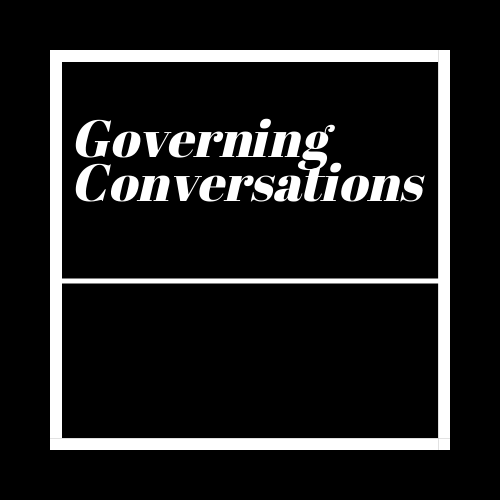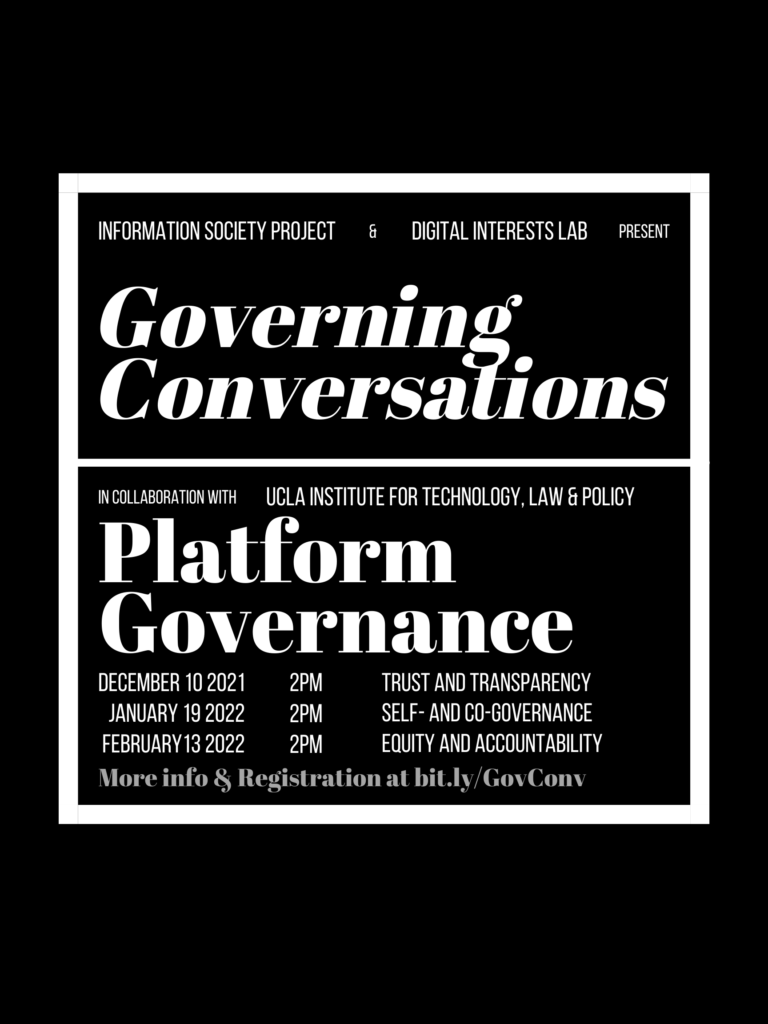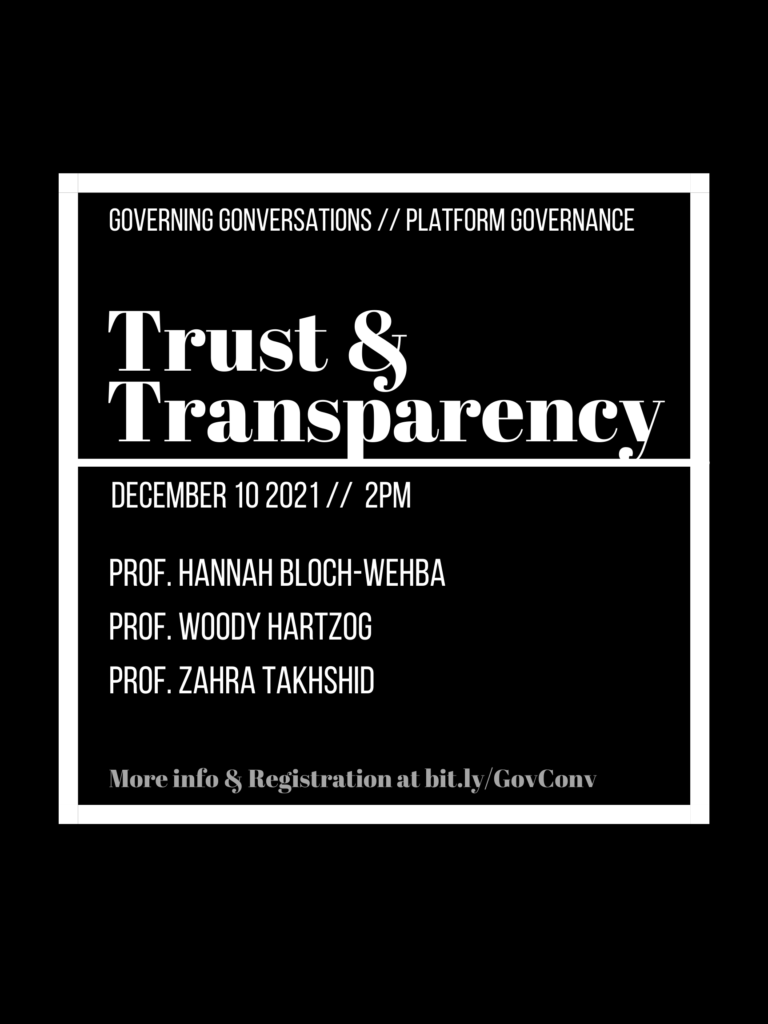Governing Conversations
Yale Information Society Project and Digital Interests Lab event series

Technology governance issues are now at the forefront of national and global news. Interdisciplinary by nature and with wide-ranging applications, governance scholarship is thus transitioning into a consequential but poorly-defined space.
Co-created by the Digital Interests Lab at NYU, and the Information Society Project at Yale Law School, the Governing Conversations series aims to provide scholars in the field and interested audiences alike a time for genuine reflection and critical perspectives, without the need for a connection to recent events, or academic presentations.
Short of an agenda-setting event, the series sets up three interconnected but distinct themes that can galvanize a better shared understanding of governance research and its role across society.
The series will feature 9 conversations spread out over three themes, each featuring a mix of junior and senior scholars with relevant experience exploring both substantive and professional issues across all three.
Platform Governance, co-sponsored by the UCLA Institute for Technology Law and Policy, will kick off in the Fall of 2021, with events in December 2021, January and February 2022, with speakers being announced soon. The second and third themes will kick off later in 2022.
Platform Governance
Co-Sponsored by UCLA Institute for Technology Law & Policy
December 2021 – February 2022

I. Trust and Transparency
December 10th 2021
2PM EST – 3PM EST
Civil society and government stakeholders have very low trust in industry, based on repeated violations of the latter’s own promises. Concurrently, information asymmetry is an initial hurdle to both studying and proposing solutions for platform governance. However, as with everything in this space, the answer is rarely as simple as it may seem at first glance. Transparency, a necessary first step, may end up enabling bad actors, may inadvertently compromise privacy, and ultimately can become a substitute for meaningful policy change. Do systems need to be fully rebuilt in order to restore a sense of balance, or is that balance a red herring? Is the solution policy, tech, both, neither?
Scholars
Hannah Bloch-Wehba, Associate Professor of Law, Texas A&M University
Woodrow Hartzog, Professor of Law and Computer Science, Northeastern University
Zahra Takhshid, Assistant Professor of Law, University of Denver
Register here.

II. Self- and Co-Governance
January 19th 2022
2PM EST– 3PM EST
An argument can be made that in a legislative environment like the one in the US, the government may not be able to fully tackle the myriad problems that digital platforms bring on, and that the solution should come from a buffet of options. The answer thus is that on some things industry is, or should be responsible for governing itself, while on others all stakeholders should have a say. Is that still a legitimate perspective? Is that the case in other environments where the government is not as restricted?
Scholars to be announced soon
III. Equity and Accountability
February 23rd 2022
2PM EST– 3PM EST
There is a crisis of accountability not just in platform governance in particular, but within platforms in general. Several waves of purported silver bullets, be they through technology, humanity, or ethics, have failed to bring about a true overhaul of the problematic systems in question, offering fleeting small victories instead. How does equity go beyond a performative structure? Can a different way of conceptualizing technology bring about a better environment? Do governance scholars have a responsibility for previous failures?
Scholars to be announced soon
2. Accessibility
Spring 2022
3. Cybersecurity
Summer 2022
Comments